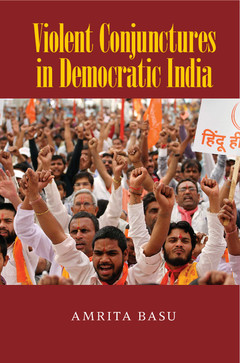Amrita Basu is the author of Two Faces of Protest: Contrasting Modes of Women's Activism in India. She is the editor or co-editor of six books, including Women's Movements in a Global Era: The Power of Local Feminisms and Beyond Exceptionalism: Violence, Religion and Democracy in India. She has received research support from the National Endowment for the Humanities, the Social Science Research Council, the John D. and Catherine T. MacArthur Foundation, and the American Institute of Indian Studies. She is a member of the Council of the American Political Science Association and Vice President of the American Institute of Indian Studies. She is on the editorial boards of the International Political Science Review, American Political Science Review, the International Feminist Journal of Politics, Meridians: Feminism, Race, Transnationalism, and Critical Asian Studies. She was previously the South Asia editor for The Journal of Asian Studies.




